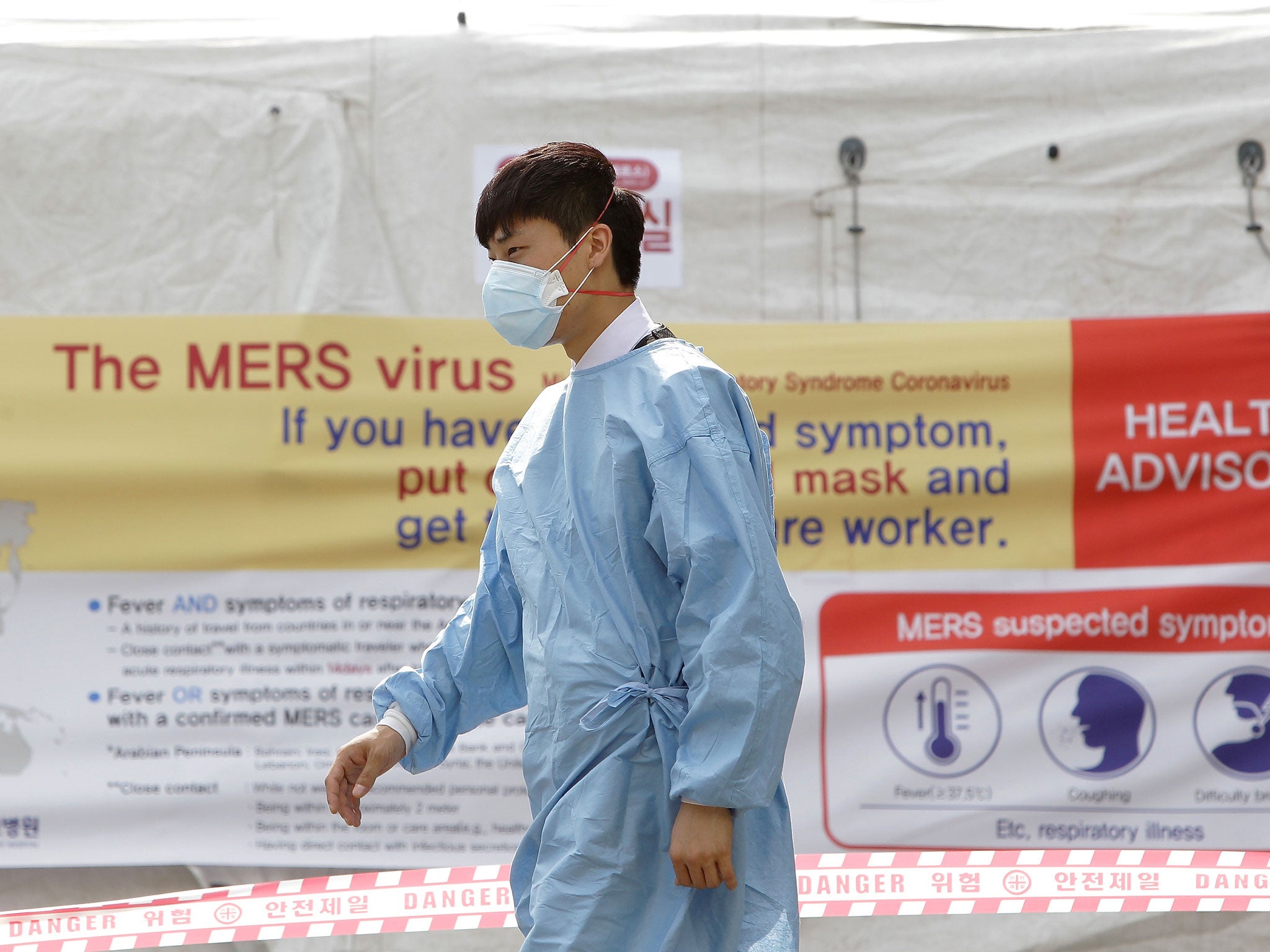Mers virus: What are the symptoms, what is it and where in the world has it affected?
South Korea has experienced a spate of cases in the past month although most reported incidents have occurred in the Arabian Peninsular

Your support helps us to tell the story
From reproductive rights to climate change to Big Tech, The Independent is on the ground when the story is developing. Whether it's investigating the financials of Elon Musk's pro-Trump PAC or producing our latest documentary, 'The A Word', which shines a light on the American women fighting for reproductive rights, we know how important it is to parse out the facts from the messaging.
At such a critical moment in US history, we need reporters on the ground. Your donation allows us to keep sending journalists to speak to both sides of the story.
The Independent is trusted by Americans across the entire political spectrum. And unlike many other quality news outlets, we choose not to lock Americans out of our reporting and analysis with paywalls. We believe quality journalism should be available to everyone, paid for by those who can afford it.
Your support makes all the difference.Last week, South Korea confirmed that the country had experienced two deaths from Middle East Respiratory Syndrome (Mers) after tests on a 58-year-old woman who died of acute respiratory failure showed she had been infected with the disease before her death.
A 71-year-old man who tested positive for the virus also died. South Korea has now reported 24 cases since last month, in most instances in people who have had contact with the original patient.
China also reported that it had placed one of the South Korean relatives of the original case in quarentine after he presented sympotoms of Mers at a Chinese hospital. Staff are said to have drawn lots at the hospital as to who will treat the patient.
What is Mers?
Middle East respiratory syndrome coronavirus (Mers) belongs to the same group of coronaviruses that includes SARS and the common cold.
The first fatality occurred in Saudi Arabia in 2012, the virus affects the respiratory system, attacking patients’ lungs and breathing tubes.
The Centers for Disease Control and Prevention (CDC) have previously said that all reported cases have been linked to countries in and near the Arabian Peninsula.
How dangerous is it?
South Korea has had a spate of cases in the last month and there have been 1,167 reported incidents of Mers worldwide, of which 479 have died from the disease.
The virus can affect anyone; reported cases have gone been as young as one-year-old and as late in life as 99.

People who are at an increased risk of catching the virus are those who have exposure to camels and healthcare personnel who do not follow recommended infection-control precautions.
According to the CDC the virus is particularly dangerous for people with diabetes, kidney failure, or chronic lung disease.
Most of the deaths which have occurred already have an underlying medical condition.
Could it spread?
Mers spreads through close contact between infected patients and those caring for or living with them.
The World Health Organisation has said that there are no known cases of Mers spreading throughout the community however, although there are some cases where transmission of the virus has occurred in hospital.
How can you catch it?
To catch the virus, a person would have to come into close contact with somebody who is already infected with Mers. That said, the CDC advises people not to drink raw camel milk and urine and not to eat undercooked meat – especially camel meat.
What are the symptoms?
Those infected tend to display symptoms between two and five days, although the virus can have an incubation period of up to 14 days.
When patients do present with symptoms, they are usually fever, shortness of breath and coughing. Some people also suffer from gastrointestinal symptoms including diarrhoea, nausea and vomiting.
Join our commenting forum
Join thought-provoking conversations, follow other Independent readers and see their replies
Comments